Blood on the Tongue***1/2 Stephen Booth
http://www.reviewingtheevidence.com/review.html?id=2142
The weather is cold and the clues no warmer as Peak District detectives Ben Cooper and Diane Fry tackle a medley of mysteries--each one knottier than the last--in English author Stephen Booth's haunting third novel, Blood on the Tongue. The unidentified body of a dead man has turned up on a frosty roadside. An abused woman is found curled in the snow on nearby Irontongue Hill, an apparent suicide. And there's the lingering puzzle of a Royal Air Force bomber that crashed into Irontongue back in 1945, killing everyone on board except for the pilot, who reportedly walked away from the wreckage... and was never heard from again. With leave and sickness decimating the ranks of the Edendale police force, all hands are needed to solve the modern deaths. But constable Cooper finds himself distracted by the World War II tragedy, in large part because of a beguiling young Canadian, the granddaughter of that missing pilot, who's come to Edendale determined to clear her ancestor's name.
Amsterdam***** Ian McEwan
http://en.wikipedia.org/wiki/Amsterdam_(novel)
On a chilly February day, two old friends meet in the throng outside a London crematorium to pay their last respects to Molly Lane. Both Clive Linley and Vernon Halliday had been Molly's lovers in the days before they reached their current eminence: Clive is Britain's most successful modern composer, and Vernon is editor of the newspaper The Judge. Gorgeous, feisty Molly had other lovers, too, notably Julian Garmony, Foreign Secretary, a notorious right-winger tipped to be the next prime minister.
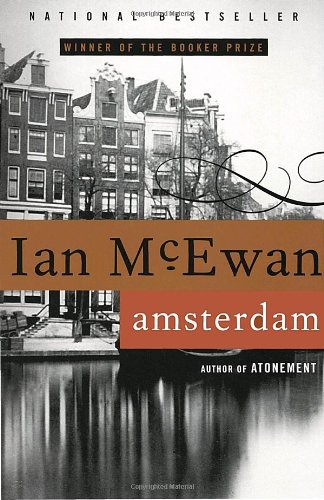
Oliver Twist***** Charles Dickens
http://www.online-literature.com/dickens/olivertwist/
The cruelty of institutions and bureaucracies toward the unfortunate is perhaps the preeminent theme of Oliver Twist, and essentially what makes it a social novel. Dickens wrote the book largely in response to the Poor Law Amendment Act of 1834, which represented the government's both passive and active cruelty to the poor and helpless. Although institutions show both passive and active cruelty in Oliver Twist, active cruelty is more prevalent, a move that serves to exaggerate and thus satirize this cruelty and make it seem intentional.
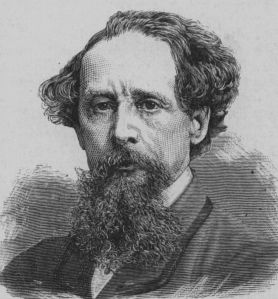
Bride of New France*** Suzanne Desrochers
In 1669, Laure Beausejour, an orphan imprisoned with prostitutes, the insane and other forgotten women in Paris’ infamous Salpetriere, is sent across the Atlantic to New France as a Fille du roi. Laure once dreamed with her best friend Madeleine of using her needlework stills to become a seamstress on the Rue Saint-Honoré and to one day marry a gentleman. The King, however, needs French women in his new colony and he finds a fresh supply in the city’s largest orphanage. Laure and Madeleine know little of the place called New France, except for stories of ferocious winters and men who eat the hearts of French priests. To be banished to Canada is a punishment worse than death.
Judy Garland***1/2 Anne Edwards
http://www.goodreads.com/book/show/311304.Judy_Garland
In this biography of Judy Garland the legend is examined and stripped of its glittering veneer. Revealed is a lonely woman desperately searching out love and affection. She was kept going by pills and eventually driven to breaking point.
Rainbow: The Stormy Life of Judy Garland**** Christopher Finch
http://www.amazon.com/Rainbow-stormy-life-Judy-Garland/dp/0448117312
It might not be the most titillating or detailed Judy Garland biography out there, but it may also be the best, because it treats her life thoughtfully and skeptically. It tries harder than any I've read to pull back the mythology, wade through the apocryphal, scandalous details, and figure out who this woman really was. Which is an impossible task, but Finch gives it the most valiant effort I've seen.
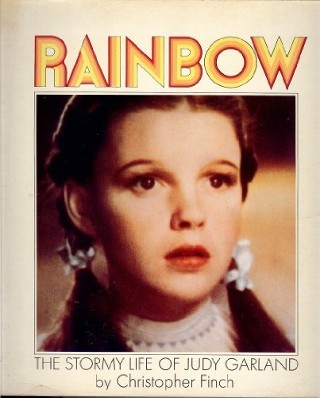
The Other Side of the Rainbow: On the Dawn Patrol With Judy Garland****
Mel Torme
http://noodleinahaystack.blogspot.ca/2010/08/other-side-of-rainbow-with-judy-garland.html
In The Other Side of the Rainbow, world-renowned vocalist Mel Torme takes readers on a Hollywood rollercoaster ride through the triumphs and disasters of the short-lived "Judy Garland Show", at the same time revealing a personal side of Judy Garland rarely glimpsed.
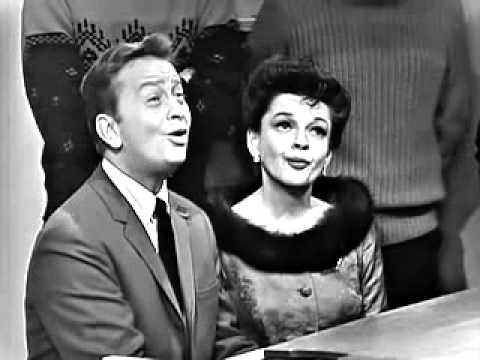
An Interpretation of Murder**** Jeb Rubenfeld
Inspired by Sigmund Freud's only visit to America, The Interpretation of Murder is an intricate tale of murder and the mind's most dangerous mysteries. It unfurls on a sweltering August evening in 1909 as Freud disembarks from the steamship George Washington, accompanied by Carl Jung, his rival and protégé. Across town, in an opulent apartment high above the city, a stunning young woman is found dangling from a chandelier--whipped, mutilated, and strangled. The next day, a second beauty--a rebellious heiress who scorns both high society and her less adventurous parents--barely escapes the killer. Yet Nora Acton, suffering from hysteria, can recall nothing of her attack. Asked to help her, Dr. Stratham Younger, America's most committed Freudian analyst, calls in his idol, the Master himself, to guide him through the challenges of analyzing this high-spirited young woman whose family past has been as complicated as his own.
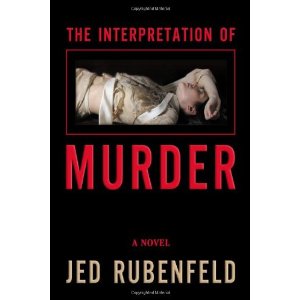
The Alienist***** Caleb Carr
http://en.wikipedia.org/wiki/The_Alienist
Fast-paced and gripping, infused with a historian's exactitude, The Alienist conjures up the Gilded Age and its untarnished underside: verminous tenements and opulent mansions, corrupt cops and flamboyant gangsters, shining opera houses and seamy gin mills. Here is a New York during an age when questioning society's belief that all killers are born, not made, could have unexpected and mortal consequences.
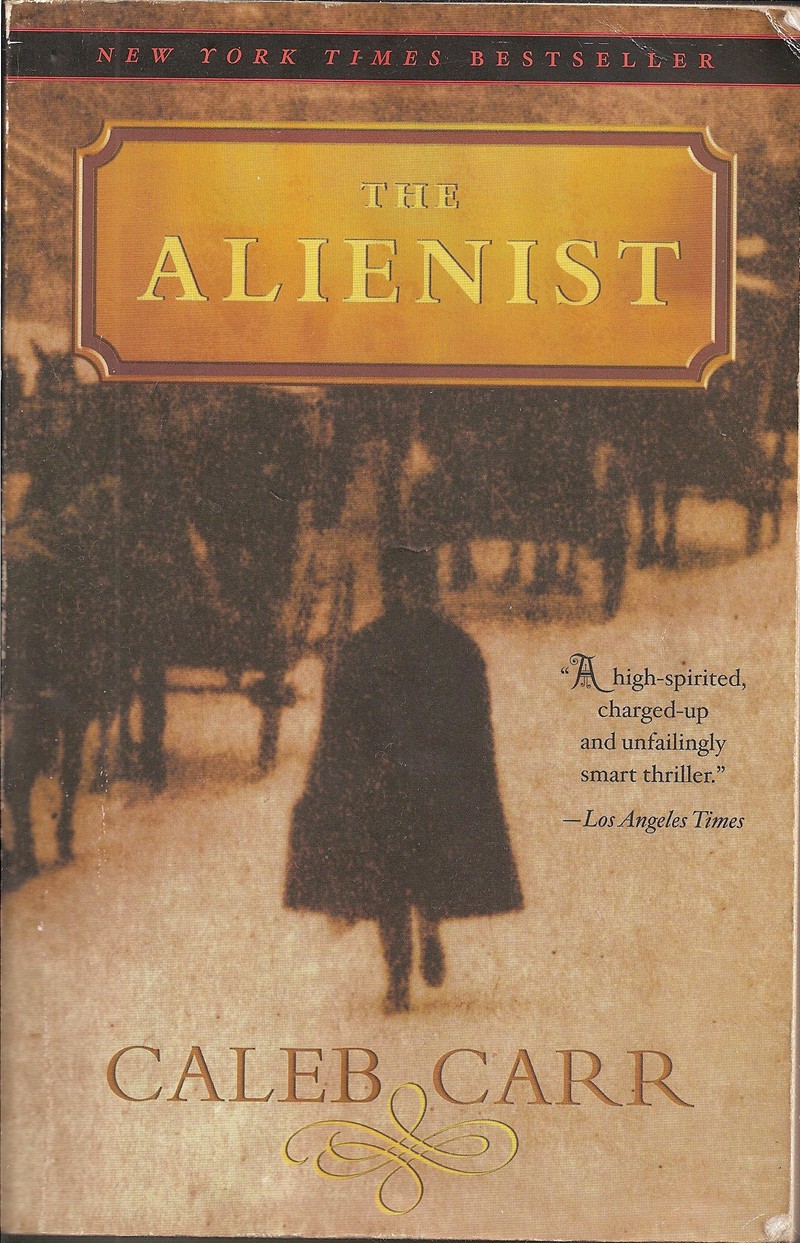
The Angel of Darkness****1/2 Caleb Carr
http://www.randomhouse.com/features/calebcarr/
The time is June 1897. The place is New York City. The story is narrated by 13-year-old, streetwise Stevie Taggart, who is a member of a team of detecting irregulars. The kidnapping of an 18-month-old child sets the story in motion. The ongoing investigation uncovers a sociopath named Libby Hatch, who is a suspect in the deaths of a frightening number of children, including her own. Using the relatively new fields of forensics and psychoanalysis, and calling on the assistance of some well-known "names" (Teddy Roosevelt, Franz Boaz, Cornelius Vanderbuilt), the team runs Libby Hatch to earth. But where is the child she recently abducted? The clever zigzags of this thriller finally answer this question. Well recommended.
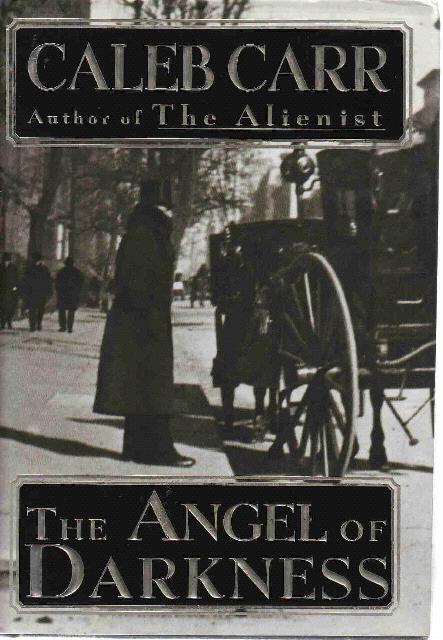
Farewell, My Lovely***** Raymond Chandler
http://en.wikipedia.org/wiki/Farewell,_My_Lovely
Farewell, My Lovely (1940) is famous for its metaphors. Chandler's second novel also features one of the richest troves of grotesque characters in American literature. The plot may be disjointed but the theme is sure. This was Chandler's favorite novel, and many critics think it his best.
Foremost among the grotesques is Moose Malloy, a giant, lovelorn gangster whom Marlowe meets outside Florian's, a now-Negro bar where Malloy seeks his old flame, Velma. When the bouncer tries to throw him out, Malloy kills him and maims the owner, and Marlowe is a witness. Gold-bricking, racist Lt. Nulty gets the case and persuades the detective to do his footwork. From a hotel clerk he learns that Florian's widow Jesse is alive, and from her he gleans an old photo of Velma. This he reports to Lt. Nulty.
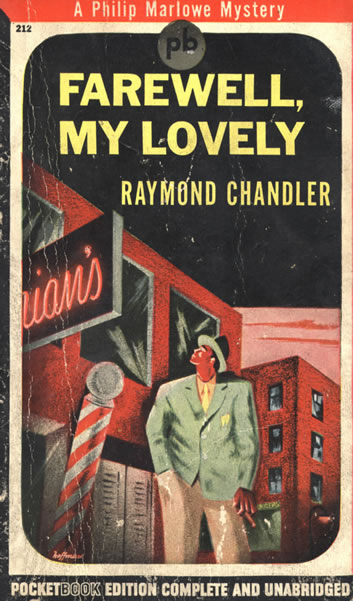
Shadowland**** William Arnold
http://jeffreykauffman.net/francesfarmer/sheddinglight.html
In 1972, her purported autobiography Will There Really Be a Morning? was published to great critical acclaim. The story might have ended there, but in 1978 Seattle film critic William Arnold published his account of Farmer's life, entitled Shadowland. Arnold claimed to have uncovered previously undisclosed information that Farmer had suffered a transorbital lobotomy at the hands of Dr. Walter Freeman, the man who, with James Watts, had introduced the prefrontal lobotomy to the United States, and who had later "refined" his technique to avoid drilling through the skull, instead resorting to inserting an icepick like device through the eye socket up into the brain to sever the frontal lobes. Arnold's disturbing account, the first time ever anyone had made the lobotomy assertion about Farmer, became the basis for the 1982 feature film Frances starring Jessica Lange.
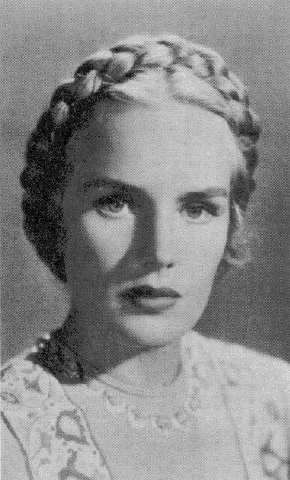
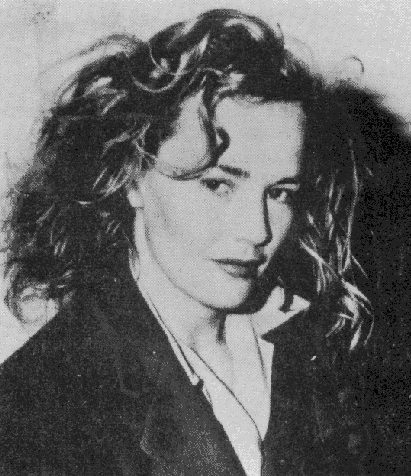
The two faces of Frances Farmer
Self Portrait: Gene Tierney***1/2 Gene Tierney
http://en.wikipedia.org/wiki/Gene_Tierney
Called the most beautiful woman in movie history by Darryl Zanuck (founder of 20th Century Fox), actress Gene Tierney also proves herself a good and insightful writer with this accomplished "self-portrait". I appreciate her honesty regarding her psychological problems and the fun tidbits about Hollywood life in the 1940s. It's unfortunate that the name Gene Tierney is so unfamiliar these days. She was a talented actress and writer, and I enjoy her work very much.
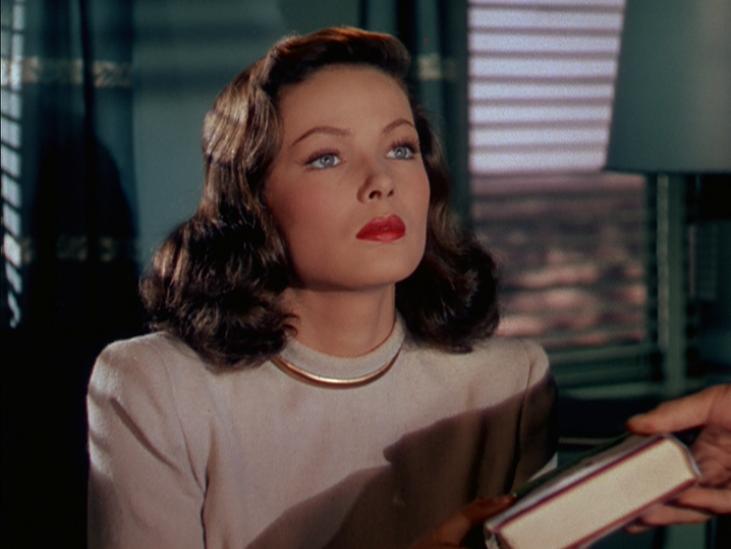
Legend: The Life and Death of Marilyn Monroe**** Fred Lawrence Guiles
http://www.amazon.ca/Legend-Life-Death-Marilyn-Monroe/dp/0812885252
Detailed and informative, this biography charts Monroe's tragic story and provides great insights from her beginnings as Norma Jean. Yet, at times this is too traditional a biography in its structure and doesn't really capture the screen icon and sex symbol's allure.
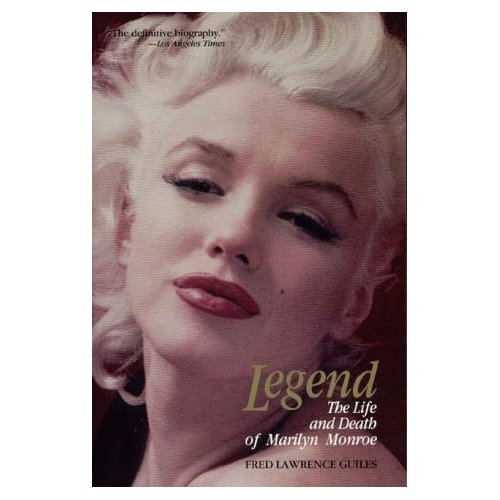
The Last Days of Monroe***1/2 Donald H. Wolfe
In the strange, lost days before her death, Marilyn Monroe remained mostly indoors digesting good news, bad news and large quantities of chemicals. The good news was that her career appeared to be back on song, with a satisfying deal to make two new pictures for 20th Century Fox. The bad news was that she was struggling more than ever with the depression, bordering upon despair, that had brought her to a state of wretched dependency.
http://www.amazon.ca/Legend-Life-Death-Marilyn-Monroe/dp/0812885252
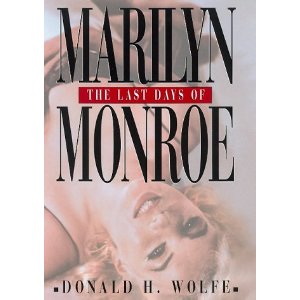
The Kennedy Brothers**** Richard D. Mahoney
http://www.goodreads.com/book/show/10177184-the-kennedy-brothers
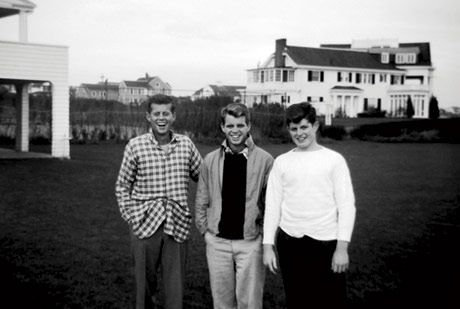
This intriguing book brings a fresh perspective to bear on the intimate, charged partnership of John and Robert Kennedy. The author, Richard D. Mahoney, whose father was a friend of Bobby's and an appointee of Jack's, has both the academic and political experience necessary to evaluate evidence of the Kennedys' relations with the Mafia, anti-Castro rebels, and other groups lurking in the shadows of American life. He also has a sharp eye for the brothers' differing yet complementary personalities. Jack was intellectual and cheerfully cynical, with a zest for pleasure increased by a life-threatening illness concealed from the public. He looked to passionate, partisan Bobby for bulldog-like political support and used his brother as a "moral compass" when planning his administration's actions on civil rights, the corruption of organized labor, and the containment of Communism. Their powerful father, Joseph--whose deep pockets basically bought Jack the presidency and at the same time compromised it because of Joseph's links to organized crime--looms over the brothers as the author of a Faustian bargain that may well have played a role in JFK's assassination. Mahoney's vivid, compulsively readable text offers suggestive questions rather than definitive answers, but it certainly succeeds as a bracing corrective to "America's inability to see its history as tragedy," a failure Jack and Bobby emphatically did not share.
Paris 1919***** Margaret MacMillan
http://en.wikipedia.org/wiki/Paris_Peace_Conference,_1919
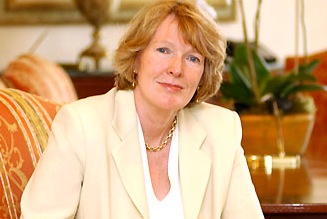
A joke circulating in Paris early in 1919 held that the peacemaking Council of Four, representing Britain, France, the U.S. and Italy, was busy preparing a "just and lasting war." Six months of parleying concluded on June 28 with Germany's coerced agreement to a treaty no Allied statesman had fully read, according to MacMillan, a history professor at the University of Toronto, in this vivid account. Although President Wilson had insisted on a League of Nations, even his own Senate would vote the league down and refuse the treaty. As a rush to make expedient settlements replaced initial negotiating inertia, appeals by many nationalities for Wilsonian self-determination would be overwhelmed by rhetoric justifying national avarice. The Italians, who hadn't won a battle, and the French, who'd been saved from catastrophe, were the greediest, says MacMillan; the Japanese plucked Pacific islands that had been German and a colony in China known for German beer. The austere and unlikable Wilson got nothing; returning home, he suffered a debilitating stroke.
Your Erroneous Zones**1/2 Wayne W. Dyer
http://suite101.com/article/dr_wayne_w_dyers_your_erroneous_zones-a177940
If you believe that you have no control over your feeling and reactions, Dyer reveals how much you can take charge of yourself and manage how much you let difficult situations affect you. If you spend more time worrying what others think than working on what you want and need, Dyer points the way to true self-reliance. From self-image problems to over-dependence upon others, Dyer gives you the tools you need to enjoy life to the fullest.
The Four Agreements**** Don Miguel Ruiz
http://www.businessballs.com/thefouragreementsdonmiguelruiz.htm
1. Be Impeccable with your Word: Speak with integrity. Say only what you mean. Avoid using the Word to speak against yourself or to gossip about others. Use the power of your Word in the direction of truth and love.
2. Don’t Take Anything Personally
Nothing others do is because of you. What others say and do is a projection of their own reality, their own dream. When you are immune to the opinions and actions of others, you won’t be the victim of needless suffering.
3. Don’t Make Assumptions
Find the courage to ask questions and to express what you really want. Communicate with others as clearly as you can to avoid misunderstandings, sadness and drama. With just this one agreement, you can completely transform your life.
4. Always Do Your Best
Your best is going to change from moment to moment; it will be different when you are healthy as opposed to sick. Under any circumstance, simply do your best, and you will avoid self-judgment, self-abuse, and regret.
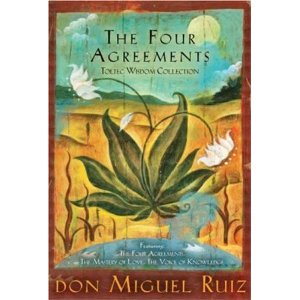
Beyond Einstein:
The Cosmic Quest for the Theory of the Universe*****Michio Kaku, Jennifer Trainer Thompson

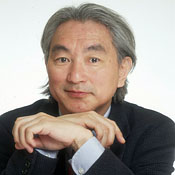
Thompson Kaku
http://en.wikipedia.org/wiki/Beyond_Einstein_(book)
What is superstring theory and why is it important? Can superstrings offer the fulfilment of Einstein's lifelong dream of a Theory of Everything? Co-authored by Michio Kaku, one of the leading pioneers of superstrings, this is a thrilling account of the discoveries that have led scientists to the brightest new prospect in theoretical physics today. With all the excitement of a detective story, this book contains the newest ground-breaking research in physics, and offers a fascinating look at the scientific research that may make the impossible possible.
Death at the Priory Sex, Love and Murder in Victorian England****
James Ruddink
Interesting historical analysis of a real murder in Victorian England. A challenging attempt by the author as the base of information is limited...but he fervently researched the episode and came up with some interesting hypotheses. Rather dry, but studious and informative.
http://www.goodreads.com/book/show/89829.Death_at_the_Priory
The Second Mrs. Gioconda***** E.L. Konigsburg
Extremely fascinating portrait that brings the da Vinci era to life. Who was Mona Lisa? Intriguing and entertaining. A must read!
http://en.wikipedia.org/wiki/The_Second_Mrs._Giaconda
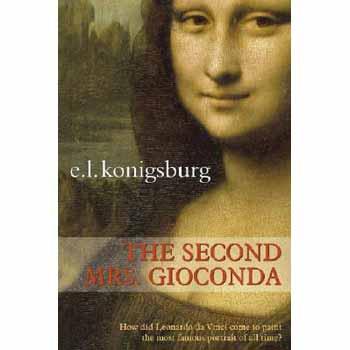
Fruit of the Lemon**** Andrea Levy
Written with enthusiasm and passion. Intricate story of young woman who finds that advice and love from the people in her life seem to be void of understanding? Why. It is because her roots have an unexplainable tie to her psyche. She is not aware of this necessary connection, but a combination of events provides her with the opportunity to find the answers to her past. Highly recommended despite the rather formel ending chapters.
http://www.goodreads.com/book/show/44000.Fruit_of_the_Lemon
Sherlock Holmes and the King's Evil*** Donald Thomas
Thomas...in writing Sherlock Holmes stories, is positioning himself to be compared to Doyle. Basically I think that he fails, primarily because of weak character development. He does succeed however in 'The Case of the King's Evil' and 'The Case of the Zimmerman Telegram.' Thomas's dialog between Watson and Holmes is reminiscent of Doyle's engaging style, although here the descriptive narrative is not as well done (whereas the scenes of Sherlock Holmes's original escapades seem to come alive on the page for me, it felt like these were flat by comparison). It's a fun, quick read.
After Life**** Rhian Ellis
This novel has a presence and strange effect. I became engaged in the book's strange combination of suspense, and discomfort. It is about a young lady who partakes in living the life of a medium, in a town of psychics who benefit from the locations notoriety. A strange murder lingers over the plot while we experience the narrator's strange encounters. A Rueful, smart, outsider perspective.
http://www.rhianellis.com/after_life__a_novel_16090.htm
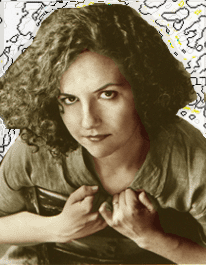
The Blue Hammer**** Ross Macdonald
(a Lew Archer Novel)
http://en.wikipedia.org/wiki/Ross_Macdonald
http://www.bookgasm.com/reviews/thrillers/the-blue-hammer/
The desert air is hot with sex and betrayal, death and madness and only Archer can make sense of a killer who makes murder a work of art. Finding a purloined portrait of a leggy blonde was supposed to be an easy paycheck for Detective Lew Archer, but that was before the bodies began piling up. Suddenly, Archer find himself smack in the middle of a decades-long mystery of a brilliant artist who walked into the desert and simply disappeared. He left behind a bevy of muses, molls, dolls, and dames-each one scrambling for what they thought was rightfully theirs.
Wonderful, taught mystery. Beautifully coordinated plot, effective characters, humour balanced perfectly with tension. Written in the Chandler tradition, and typically, impossible to put down.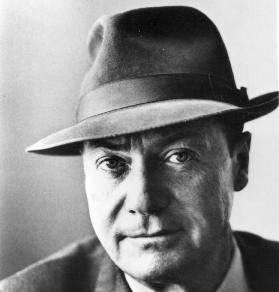
The Italian Girl***** Iris Murdoch
http://en.wikipedia.org/wiki/The_Italian_Girl
This novel was written in a style enveloping the reader in a squall of sadness, cynicism and suspense. I was taken into a world of humans that seemed to doomed regardless of the circumstances. The characters were explosive and suspicious. Wonderful experience.
The funeral of Edward’s mother brings him home for the first time in years. Though his return rekindles his affection for his childhood home, it also triggers a resurgence of the family tensions that caused him to leave in the first place. As Edward becomes tangled in his family’s web of corrosive secrets, his homecoming tips a precariously balanced dynamic into sudden chaos.
The Italian Girl is Murdoch’s compelling story of a man’s reunion with his estranged family, and of the tragedy that shocks them all into confronting their dark past.
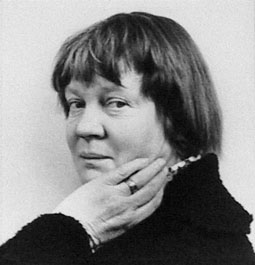
Five Quarters of the Orange****** Joanne Harris
Yes...this rated a top score. A marvelously detailed story about a woman and her resentments, and how her courage and romantic spirit
helps to untangle her from her tragic situation, questionable family, and personal demons. Brilliant, personal and intelligent.
The novels of Joanne Harris are a literary feast for the senses. Five Quarters of the Orange represents Harris's most complex and sophisticated work yet - a novel in which darkness and fierce joy come together to create an unforgettable story.
When Framboise Simon returns to a small village on the banks of the Loire, the locals do not recognize her as the daughter of the infamous Mirabelle Dartigen - the woman they still hold responsible for a terrible tragedy that took place during the German occupation decades before. Althrough Framboise hopes for a new beginning. She quickly discovers that past and present are inextricably intertwined. Nowhere is this truth more apparent than in the scrap book of recipes she has inherited from her dead mother.
With this book, Framboise re-creates her mother's dishes, which she serves in her small creperie. And yet as she studies the scrapbook - searching for clues to unlock the contradiction between her mother's sensuous love of food and often cruel demeanor - she begins to recognize a deeper meaning behind Mirabelle's cryptic scribbles. Whithin the journal's tattered pages lies the key to what actually transpired the summer Framboise was nine years old.
Rich and dark. Five Quarters of the Orange is a novel of mothers and daughters of the past and the present, of resisting, and succumbling, and an extraordinary work by a masterful writer.
http://en.wikipedia.org/wiki/Five_Quarters_of_the_Orange
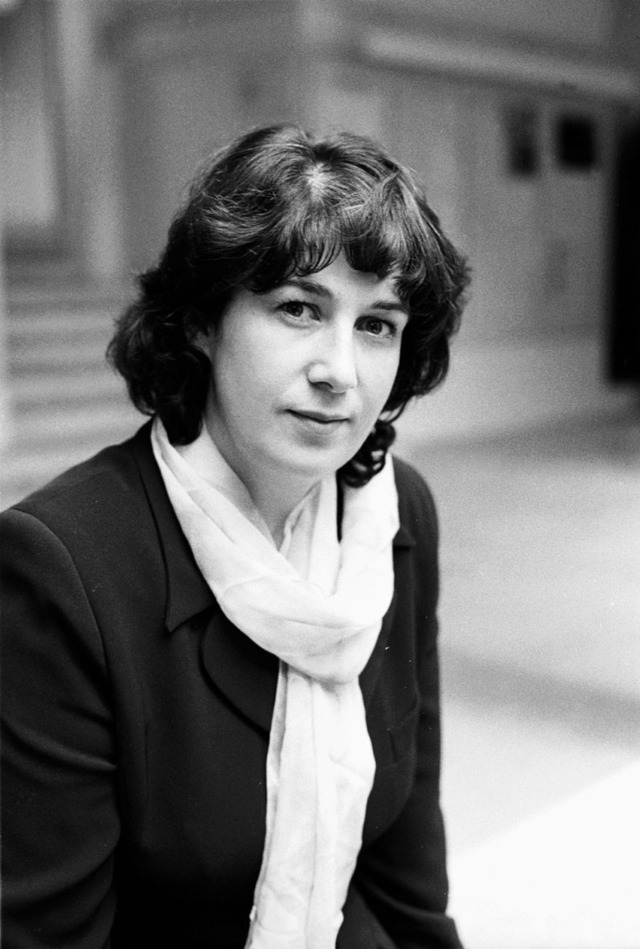
Moral Disorder***** Margaret Atwood
http://www.luminarium.org/contemporary/atwood/moral.htm
Margaret Atwood’s latest brilliant collection of short stories follows the life of a single character, seen as a girl growing up the 1930s, a young woman in the 50s and 60s, and, in the present day, half of a couple, no longer young, reflecting on the new state of the world. Each story focuses on the ways relationships transform a character’s life: a woman’s complex love for a married man, the grief upon the death of parents and the joy with the birth of children, the realization of what growing old with someone you love really means. By turns funny, lyrical, incisive, earthy, shocking, and deeply personal, Moral Disorder displays Atwood’s celebrated storytelling gifts and unmistakable style to their best advantage.
Typically, Atwood writes in a style that is not assumptive and in a strange way, almost matter-of-fact. This seems to be based on her realization that man has a pre-destined relationship with his environment, and that spirituality is based not on a particular God, but one's own ability to become in touch with his world in an accepting way on the one hand, and a rebellious way on the other.
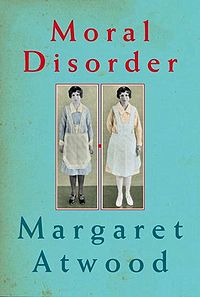
Sarah's Key**** Tatiana De Rosnay
http://en.wikipedia.org/wiki/Sarah's_Key
As De Rosnay explained herself, she wrote this novel out of a passionate response and sense of responsibility. She wanted to tell the storyin a non-academic way, to tell the terrifying story in a personal matter, illustrating the impact this event had on actual people over a period of time. What was most effective was the way she integrated graphic incidents into the storytelling, as if they just happened in the order of events. This also portrayed the French police as carrying out their duties as totally impersonalized human beings. Powerful!
Paris, July 1942: Sarah, a ten year-old girl, is brutally arrested with her family by the French police in the Vel' d'Hiv' roundup, but not before she locks her younger brother in a cupboard in the family's apartment, thinking that she will be back within a few hours.
Paris, May 2002: On Vel' d'Hiv's 60th anniversary, journalist Julia Jarmond is asked to write an article about this black day in France's past. Through her contemporary investigation, she stumbles onto a trail of long-hidden family secrets that connect her to Sarah. Julia finds herself compelled to retrace the girl's ordeal, from that terrible term in the Vel d'Hiv', to the camps, and beyond. As she probes into Sarah's past, she begins to question her own place in France, and to reevaluate her marriage and her life.
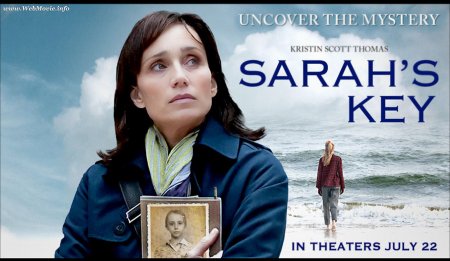
The Other Side of the Bridge*****
Mary Lawson
http://en.wikipedia.org/wiki/Mary_Lawson
http://www.guardian.co.uk/books/2006/oct/07/featuresreviews.guardianreview14
Wonderful saga of intermingling families in small town northern Ontario, during wartime (1942). Excellent characterizations and realistic if not sometimes predictable portrayals. The story shows how the characters respond to feelings, that are somewhat unjustified, but nonetheless a part of 'human nature'. Effective balance of humour and tragedy and well placed over-riding themes. Thoroughly enjoyable and at times touching.
From the author of the beloved #1 national bestseller Crow Lake comes an exceptional new novel of jealously, rivalry and the dangerous power of obsession.Two brothers, Arthur and Jake Dunn, are the sons of a farmer in the mid-1930s, when life is tough and another world war is looming. Arthur is reticent, solid, dutiful and set to inherit the farm and hisfather’s character; Jake is younger, attractive, mercurial and dangerous to know – the family misfit. When a beautiful young woman comes into the community, the fragile balance of sibling rivalry tips over the edge.Then there is Ian, the family’s next generation, and far too sure he knows the difference between right and wrong. By now it is the fifties, and the world has changed – a little, but not enough.

Let Loose The Dogs*** Maureen Jennings
http://www.maureenjennings.com/?page_id=58
In each succeeding historical mystery set in late 19th century Toronto, Jennings has not only placed her readers vividly in the period and the place, but has also given them an involving story. Her books have the added spice of a blend of conventionally defined crime and the often more egregious failures of the period’s social system. Finally, she has steadily fashioned and filled out the character of her protagonist, Acting Detective William Murdoch, until he joins the select group of fictional beings who become more real to the reader than most flesh and blood acquaintances. We have met a human being.
In Let Loose the Dogs Murdoch’s job and his life combine tragically. He learns that his beloved sister, who long ago fled to a cloistered convent to evade their drunken and abusive father, is on her deathbed. Meanwhile, Harry Murdoch, the father whom Murdoch had long ago wiped out of his life, and who may have caused his mother’s death, has been convicted of murder. Harry calls on his estranged son to prove his innocence and to save his life.
In the midst of these family crises, Murdoch can at least rejoice that his struggling romance seems to have some promise.
An enjoyable read but somewhat disappointing in that the plot seemed to be full of intricacies that did not always link smoothly. I did not
get a strong sense of the protagonists character, nor was the sense of place (Toronto in 1900) portrayed as brilliantly as I would have liked.
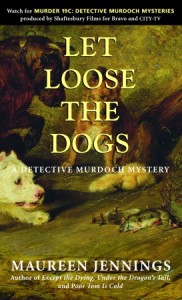
Main Street****** Sinclair Lewis
http://en.wikipedia.org/wiki/Main_Street_(novel)
One of the truly richest and meaningful reads of my life. A fascinating study of Carol Milford, a woman of the early 1900's, who endures conservatism, backwardness, cliquishness, male domination, and a disregard for the potential beautification of the world around her. She makes bold decisions and is very pro-active in changing her life, and the lives of those around her. Lewis' style was both descriptive, and coyly satirical. A true moniker for the time.
Dreams end and realism begins when Carol takes a thirty-minute walk, inspecting the town, north and south, east and west. It is then that she realizes the shabbiness surrounding her. Her first social evening is also a disappointment, for she finds the conversation of both men and women personal and trivial. She tries to introduce something different. On the way home, however, she is lectured by her husband on the danger of shocking people.
As time goes on, Carol makes one attempt after another to enlist the help of others in uplifting Gopher Prairie. An early project is the formation of a dramatic club, which functions just long enough to present one mediocre production, The Girl from Kankakee. Carol becomes a member of the Jolly Seventeen, a bridge club composed of an elite group of young married women. She also joins the Thanatopsis Club, a literary organization, and tries to change the club programs, which are stilted and superficial. Her suggestions make little headway. Her appointment to the library board gives her a chance to express her opinions about books and reading, but her ideas are not welcomed by the local librarian, whose policy is to keep books clean by discouraging readers.
The Tiger: A True Story of Vengeance and Survival****** John Vaillant
.jpg?timestamp=1362799925898)
Outside a remote village in Russia’s Far East a man-eating tiger is on the prowl. The tiger isn’t just killing people, it’s murdering them, almost as if it has a vendetta. A team of trackers is dispatched to hunt down the tiger before it strikes again. They know the creature is cunning, injured, and starving, making it even more dangerous. As John Vaillant re-creates these extraordinary events, he gives us an unforgettable and masterful work of narrative nonfiction that combines a riveting portrait of a stark and mysterious region of the world and its people, with the natural history of nature’s most deadly predator.